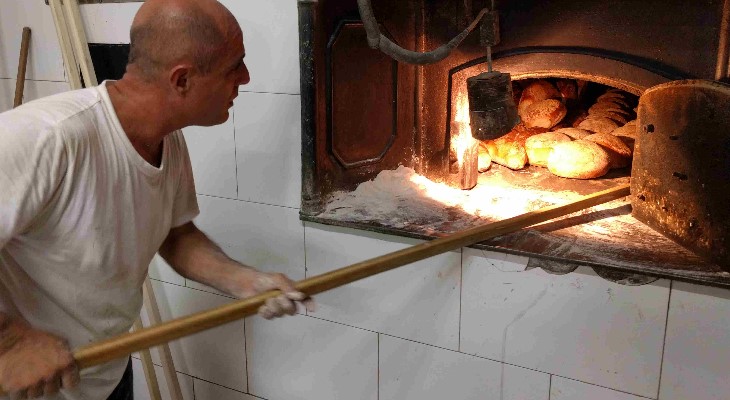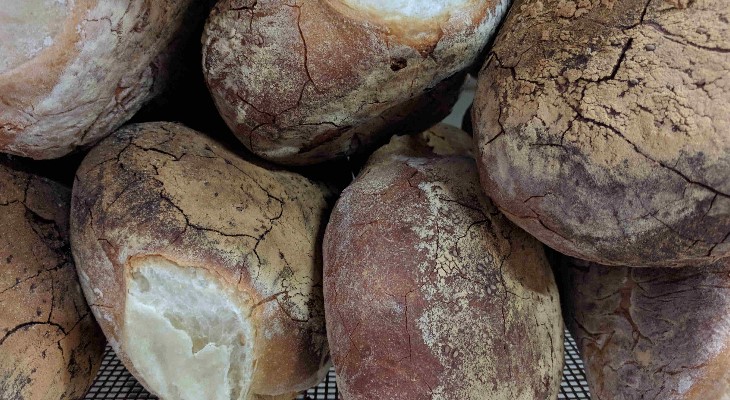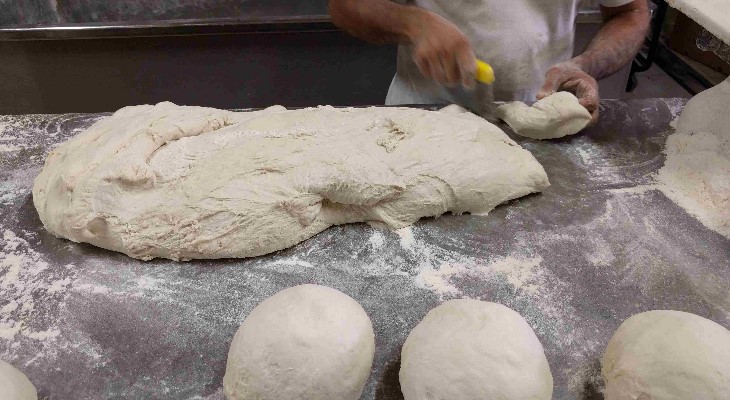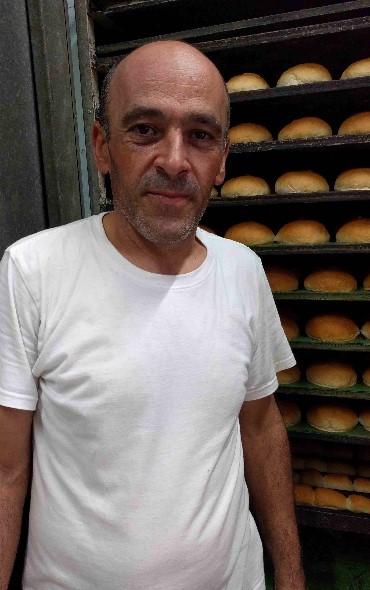No visit to Malta is complete without a taste of a Maltese ftira or hobza made in a rustic wood-fired oven.

Paul Ta' Kalc
The history, charm and lifestyle of this little Mediterranean island could not be better summed up than through the soft heart and crusty exterior of the hobza tal-Malti, or its flatter cousin, the ftira. The Maltese have been eating these for centuries and it’s not hard to see why.
Malta on a plate
The ingredients don’t sound like much when they’re listed: yeast, flour, salt and water. But everything is local – almost out of principal.

Paul Ta' Kalc
“If I find something good, I won’t change it,” Anton Micallef from Rojolin bakery in the village of Balzan tells me. He, together with his wife Romina and her sister Lina, run the small shop which has been open since the Second World War. They don’t make sliced bread ghat-toast (for toast). They don’t make a huge variety of buns. What they do make is hundreds of Maltese ftajjar (plural of ftira) and hobz tal-Malti a day.
Anton compares the ingredients for Maltese bread with standard loaves which also require mixing agents, butter and some sugar, but no additives or preservatives go into the Maltese loaves of bread. They’re as natural, artisanal and traditional as they come – this is not just bread, it’s a lifestyle; a throwback to simpler times when the neighbourhood came together.
Bread in the heart
Falzon Bakery, in one of the side streets next to St Paul’s Church in Rabat, forms part of a unit of tradespeople who stock their wares in the small shops on this street: a pharmacist, a small grocer, a butcher and even a pet shop. Small and bustling, Falzon Bakery is stocked with the traditional hobza and ftira, as well as sweets and buns, popular with children walking home after school, or so I’m told by Christopher Borg, one of the store’s bakers.

Paul Ta' Kalc
Falzon Bakery’s heritage does not only lie in the experience of its team, which includes Brian Falzon, the owner’s son, Karmenu Bugeja and Christopher, but also in the bakery itself – which has been open for over 100 years, and which is intimately linked to the history of the town. The building can be traced back to the 17th century, the same time the adjacent parish church was built, its roof overlooking the church belfry. Burial pits stretching from the nearby St Paul’s Catacomb’s reach right into the foundations of this unassuming store, as does a working well, which is still used to extract water for the dough, filtrating it in-house. During the Second World War, Falzon’s was the only place which distributed bread to the hard-hit area.
I also meet Marlene Debono, the manager at one of the newer bakeries ‘Paul ta’ Kalċ’, situated in the island capital of the trade, Qormi, which once boasted dozens of the small, dough-filled workshops. Walking past piles of wood, destined to burn in the oven, Marlene introduces me to her two star bakers, Mark Agius and Roderick Caruana, who are hard at work preparing the dough for their umpteenth batch. They tell me the trade is “in our blood” with Mark describing how his family has been in the business for over 400 years.

Rojolin
The magic’s in the wood
And while its history and cultural significance cannot be overstated, the true test of the bread’s mettle is in its taste. And the secret lies in the wood-fired oven.
Anton from Rojolin tells me the wood-fired oven makes the bread more irregular – less ‘sabih’ (beautiful) – than the cold regular curves of loaves baked in an electrical appliance which don’t need any human interference.
“It’s quicker to cook in an electric oven but the crust of the bread gets much harder, much quicker”, he says. The outside of the traditional hobza must retain its elasticity. The temperature of the baker’s hands, as he handles the bread, affects the shape. It’s a personal touch imprinted in the loaf itself and an honesty etched in the crust. It is one which guarantees that Maltese bread will forever remain embedded in the heart of this island.
10 popular wood-fired oven bakeries in Malta & Gozo
In Malta:
Barbetta, 101, Triq San Girgor, Żejtun. T: 2167 3774.
Billy Bakery, 10, Triq L-Anġlu, Haż-Żebbug. T: 7921 0560.
Emmanuel’s Bakery, Triq il-Mitħna, Qormi. T: 2148 2239.
Falzon Bakery, 7, Triq il-Kulleġġ, Rabat. T: 2145 9171.
Paul ta Kalċ, Triq L-Isqof Scicluna, Qormi. T: 7905 4833.
Rojolin, 11, Triq it-Tliet Knejjes, Balzan. T: 9935 3964.
Stefan’s Bakery, 32A, Misray Muxi, Haż-Żebbug. T: 9940 3755.
Sacred Heart, 13, Triq il-Gummar, Birkirkara. T: 7929 4018.
In Gozo:
Maxokk Bakery, St James Street, Nadur. T: 2155 0014.
Mekren, Hanaq Street, Nadur. T: 2155 2342.